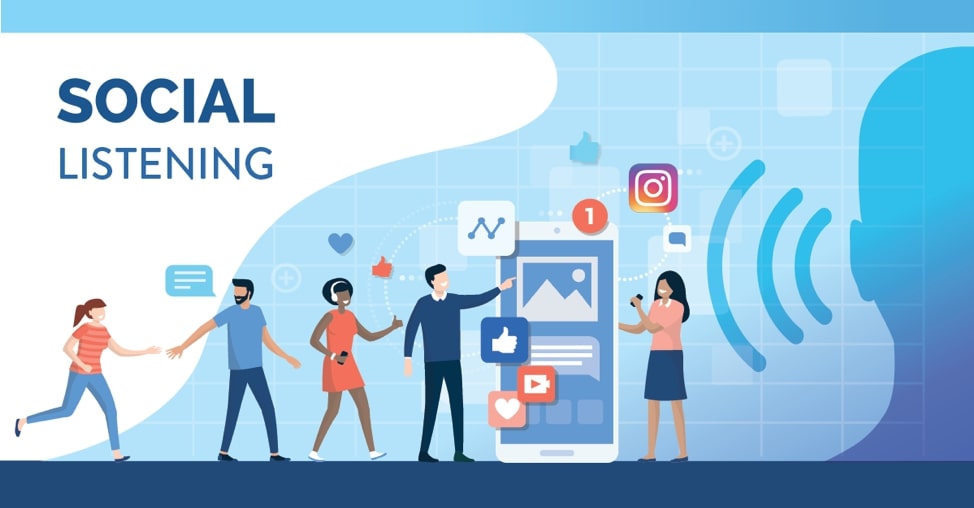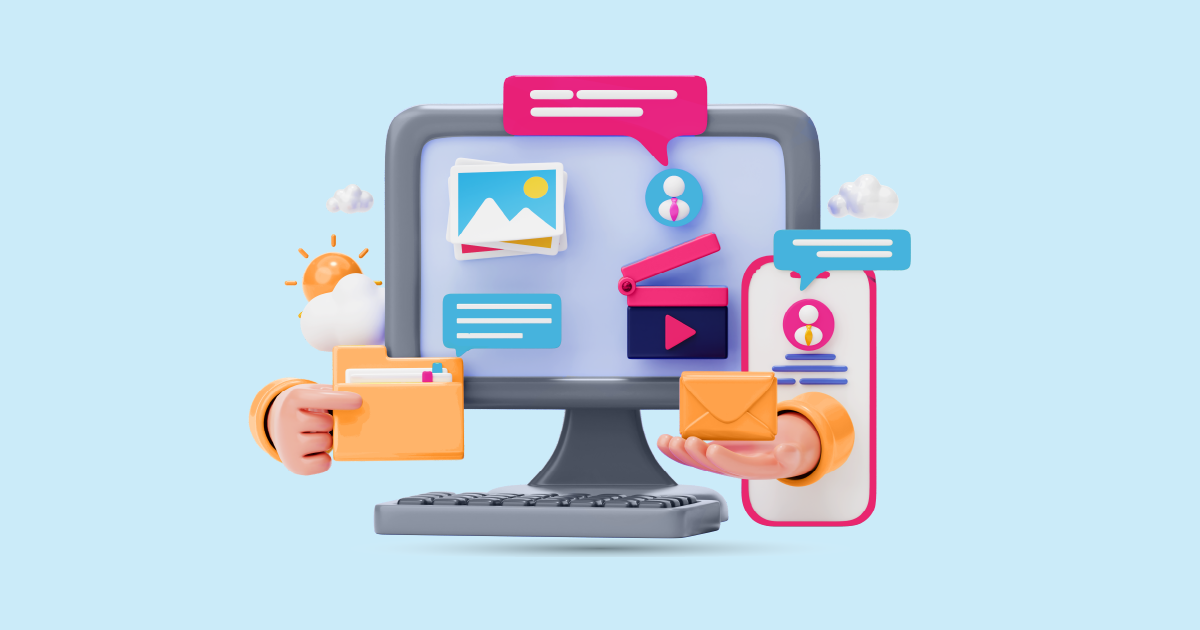In today’s hyper-connected world, businesses can’t afford to ignore the conversations happening online. Whether it’s a customer raving about your product or a disgruntled client venting their frustration, these voices carry weight. This is where social listening steps in—a powerful tool that allows companies to tune into the digital chatter and extract valuable insights. But what exactly is social listening, and how can it be used to drive business success? Let’s dive into some real-world social media listening use cases to see how companies are leveraging this technique to stay ahead of the game.
Social Media Listening Use Cases

Customer Feedback Analysis
Gathering and Analyzing Customer Opinions
Every day, customers share their thoughts online—whether through reviews, social media posts, or comments on blogs. Social listening tools can aggregate this data, allowing businesses to identify common themes and sentiments. By understanding what customers love or dislike about your products, you can make informed decisions to enhance their experience.
Improving Products and Services Based on Feedback
Imagine launching a new product only to find out that customers are frustrated with a particular feature. Social media listening enables you to catch these issues early, giving you the chance to make adjustments before they escalate. It’s like having a direct line to your customers’ thoughts, helping you refine your offerings and stay competitive.
Brand Reputation Management
Monitoring Brand Mentions
Your brand’s reputation is its most valuable asset, and social media listening uses cases helps you protect it. By monitoring mentions of your brand across social platforms, you can quickly identify any negative sentiments or potential PR crises. This real-time insight allows you to address concerns promptly and maintain a positive brand image.
Crisis Management Through Social Media Listening
When a crisis hits, time is of the essence. Social media listening allows you to detect the early signs of a crisis, such as a surge in negative mentions or trending hashtags. With this information, you can craft a swift and effective response, potentially mitigating the damage before it spirals out of control.
Competitor Analysis
Understanding Competitors’ Strategies
Want to know what your competitors are up to? Social listening gives you a behind-the-scenes look at their strategies. By analyzing the conversations around competing brands, you can gain insights into their strengths and weaknesses, helping you craft a strategy that outmaneuvers them.
Identifying Market Gaps
Social media listening use cases doesn’t just show you what your competitors are doing—it reveals what’s missing in the market. By paying attention to unmet customer needs or desires, you can identify opportunities to introduce new products or services that fill these gaps.
Trend Analysis
Tracking Industry Trends
Staying ahead of trends is crucial in any industry, and social listening is your secret weapon. By analyzing the broader conversation within your industry, you can spot emerging trends before they become mainstream, giving you a competitive edge.
Predicting Future Market Movements
Beyond tracking current trends, social media listening can help you predict where the market is heading. By understanding the trajectory of conversations and sentiments, you can make more informed decisions about your business strategy, ensuring you’re always one step ahead.
Content Strategy Development
Identifying Popular Content Topics
Content is king, but only if it’s relevant to your audience. Social media listening helps you uncover the topics that resonate most with your target market. By analyzing the types of content that generate the most engagement, you can tailor your strategy to produce content that hits the mark every time.
Creating Content That Resonates with Audience
It’s not just about what you say, but how you say it. Social listening allows you to understand the tone, language, and style that resonates best with your audience. This insight can help you craft content that feels more personal and engaging, leading to higher engagement and loyalty.
Influencer Identification and Collaboration
Finding Relevant Influencers
In the age of social media, influencers hold significant sway over public opinion. Social media listening tools can help you identify influencers who align with your brand values and have the right audience. By collaborating with these influencers, you can amplify your message and reach new customers.
Collaborating for Brand Promotion
Once you’ve identified the right influencers, social listening can also guide your collaboration efforts. By understanding what kind of content their audience responds to, you can work together to create campaigns that feel authentic and effective, driving better results for your brand.
Customer Service Enhancement
Real-Time Issue Resolution
Nothing frustrates customers more than slow responses to their issues. Social listening allows you to spot complaints in real-time, enabling your customer service team to address problems swiftly. This proactive approach can turn a negative experience into a positive one, boosting customer satisfaction.
Building Stronger Customer Relationships
When you listen to your customers, they feel valued. Social media listening helps you understand their needs, preferences, and pain points, allowing you to build stronger, more meaningful relationships. This not only improves customer loyalty but also turns satisfied customers into brand advocates.
Product Development Insights
Understanding Customer Needs and Pain Points
Great products solve real problems. Social listening provides insights into the challenges and frustrations your customers face, helping you develop products that truly meet their needs. By aligning your product development process with customer feedback, you can create solutions that resonate with your target audience.
Innovating New Products Based on Social Data
Innovation is key to staying relevant, and social media listening is a valuable tool in your innovation arsenal. By analyzing social data, you can identify trends, gaps, and opportunities for new products that your customers will love.
Campaign Performance Tracking
Measuring Campaign Effectiveness
Launching a marketing campaign is just the beginning; understanding its impact is where the real work begins. Social listening allows you to track the performance of your campaigns in real-time, providing insights into what worked and what didn’t. This data-driven approach ensures your future campaigns are even more successful.
Adjusting Strategies Based on Social Feedback
The beauty of social listening is that it provides immediate feedback. If a campaign isn’t resonating as expected, you can make adjustments on the fly. Whether it’s tweaking your messaging or shifting your target audience, social media listening ensures you’re always in tune with your market.
Event Monitoring
Analyzing Social Buzz Around Events
Whether it’s a product launch, a conference, or a promotional event, social listening helps you gauge the buzz. By tracking the online conversation, you can measure the success of your event, understand audience sentiment, and gather valuable feedback for future events.
Engaging with Audience During Events
Real-time engagement is crucial during events. Social media listening allows you to monitor the conversation as it happens, enabling you to interact with attendees, address concerns, and amplify positive feedback. This not only enhances the event experience but also strengthens your brand’s presence.
Crisis Management
Early Detection of Potential Crises
Crises often brew long before they become full-blown disasters. Social listening helps you detect the early warning signs, such as a sudden spike in negative mentions or a controversial topic gaining traction. By catching these signs early, you can take preventive action and avoid a major PR headache.
Effective Response Strategies
Once a crisis hits, your response can make or break your brand. Social media listening provides the insights needed to craft an effective response strategy. By understanding the key concerns and emotions driving the conversation, you can address the issue head-on, showing your customers that you care and are committed to making things right.
The Benefits of Social Media Listening Use Case
Improved Customer Satisfaction
Social listening allows you to respond to customer needs more effectively, leading to higher satisfaction levels. When customers feel heard and valued, they are more likely to remain loyal to your brand.
Enhanced Brand Loyalty
By consistently monitoring and responding to customer feedback, you build trust and loyalty. Social media listening helps you stay connected with your audience, ensuring they have positive experiences with your brand.
Better Market Positioning
With insights from social listening, you can make strategic decisions that improve your market positioning. Whether it’s launching a new product, entering a new market, or adjusting your messaging, social listening provides the data you need to stay ahead of the competition.
Challenges of Social Media Listening Use Case
Data Overload
One of the biggest challenges of social media listening is managing the sheer volume of data. With so much information available, it can be difficult to separate the signal from the noise. Effective tools and strategies are essential for filtering and analyzing the data that matters most.
Analyzing Sentiment Accurately
Understanding the sentiment behind social media posts can be tricky. Sarcasm, irony, and cultural differences can all complicate sentiment analysis. Accurate sentiment analysis requires sophisticated tools and a deep understanding of your audience.
Integration with Other Business Tools
For social listening to be truly effective, it needs to be integrated with other business tools, such as CRM systems and marketing platforms. This ensures that insights from social listening can be seamlessly applied across your business, enhancing your overall strategy.
Best Practices for Effective Social Media Listening Use Cases
Choosing the Right Tools
There are numerous social listening tools available, each with its own strengths and weaknesses. Choose a tool that aligns with your business needs and offers the features necessary for effective monitoring and analysis.
Regular Monitoring and Analysis
Social listening isn’t a one-time task—it’s an ongoing process. Regular monitoring and analysis ensure that you stay on top of trends, respond to issues promptly, and continuously improve your strategy.
Collaborating Across Departments
Social listening insights are valuable across various departments, from marketing to customer service to product development. Ensure that these insights are shared and acted upon by collaborating across teams, fostering a more cohesive and effective strategy.
Conclusion
Social media listening use cases is more than just a buzzword—it’s a powerful tool that can transform the way you do business. By understanding the conversations happening around your brand, your competitors, and your industry, you can make more informed decisions, improve customer satisfaction, and stay ahead of the competition. In today’s digital landscape, social listening isn’t just an option—it’s a necessity.
If you’re ready to take your business strategy to the next level, consider leveraging the power of social listening with AIM Technologies. Request a demo today to see how our cutting-edge tools can help you gain valuable insights, enhance your customer relationships, and drive your business forward.




